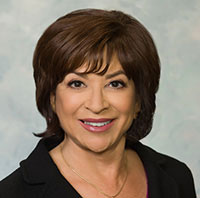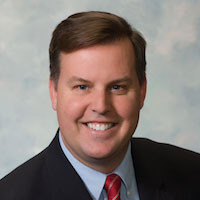Christopher Columbus Statue Will Not Return to CV’s Discovery Park, Task Force to Drive Park Name Change

The Chula Vista City Council voted Tuesday to permanently remove a statue of Christopher Columbus that once stood at the corner of Discovery Park but was removed last year after repeated attacks of vandalism raised concerns over the monument.
The City’s Human Relations Commission recently passed a resolution asking the City to remove the statue and rename the park due to Columbus’ history of atrocities committed against indigenous people. Several members of Native American groups spoke before the Council last night to voice their opposition to honoring a man who left a legacy of pain and suffering.
The Council approved the resolution on a 4 to 1 vote, with Mayor Mary Casillas Salas and Councilmembers Jill Galvez, Steve padilla, and Andrea Cardenas voting in favor, and Councilman John McCann voting against it.
The resolution submitted to the Council included with four steps to address the controversy with Discovery Park: permanent removal of the Columbus statue, renaming of Discovery Park, naming October 12th as Indigenous People’s Day in Chula Vista, and forming a task force to recommend what to do with the statue and how to document the process that the community used to resolve the issues with the park.
Dr. Stan Rodriguez of the Santa Ysabel Band of the Iipay Nation encouraged the Council to approve the resolution.
“We can’t change the past, but we can make sure that the true story is being told and that we’re not honoring people who were perpetrators and who have engaged in these atrocities,” Rodriguez said.
Elena Izcalli, a 17-year old student at Chula Vista’s High Tech High School, spoke to the Council about how the statues of controversial historical figures reinforce racial stereotypes to this day.
“Because statues are not educational, they are celebratory trophies,” Izcalli said. “The Columbus statue and monuments alike are a reminder to my peers that white supremacy is not only condoned in our city, but glorified and honored.
Izcalli made a point to explain how a statue in a public park is different from those in museums or galleries.
“Monuments are not museums where the public have a choice to enter,” Ezcalli pointed out. “These are public visible structures. Monuments are a work of a person or people erected for a purpose to keep human deeds alive and present in the consciousness of future generations,” she added.
Other speakers included educators and Native American leaders who explained how the statue of Columbus in a public park sends the wrong message to the community about reinforcing negative
Dr. Erica Renfree, Principal of Canyon Hills High School in San Diego, spoke about the process her school went through last year to change her school’s name from Father Junipero Serra High School to
“When you know better, you do better, and I’m asking this Council to do that now,” Dr. Renfree said. “And as many have mentioned, our children are watching, my children are watching, my children at my school are watching, and I know the City of Chula Vista will do what’s right.”
But not all speakers were supportive of removing the statue. One resident, Nelson Mozzini, submitted a public comment that was read aloud during the meeting.
“As a longtime resident of Chula Vista, it makes me sad to see such cancel culture items come to our community. Christopher Columbus represents the spirit of discovery and exploration.”

Mayor Mary Casillas Salas supported the resolution and said the City should honor the true history of or area.
“We have to honor the first people that were here. And how dare other cultures come in and say they are superior,” Casillas Salas said.”How dare they come in and say the culture that was there, the practices that they had, the sciences that they had are not as good as they are.”

The only member of the Council to vote against the move was John McCann, the lone Republican and only White male member on the City Council.
“It is a landmark park,” McCann said before voting, “I think you’re gonna find that there are a lot of people who have grown up in the area who love Discovery Park are going to want to keep it Discovery Park.”
Christopher Columbus has been the subject of increasing opposition and protests in recent years over his history of brutalizing indigenous peoples and for sparking the colonization of the Americans.
Native Americans also object to the characterization that Columbus “discovered” the Americas where indigenous people had lived for thousands of years before colonization, and some compare his atrocities to those committed against Jews by Adolf Hitler.
“It perpetuates this concept of discovery that no one was here, that no one was occupying these lands when Columbus got here,” said Ricardo Medina, a member of the Human Relations Commission.
Contemporary accounts from Columbus’ second voyage to the American starting in 1494 written by Spanish missionary Bartolomé de las Casas described “a spectacle of horror and dread” when Columbus’ crew killed more than 20,000 men, women, and children to compare the sharpness of their blades.
Columbus Day was made a national holiday in the US in 1934, and is also celebrated in other countries on October 12, the anniversary of his first landing in the American in 1492. A movement started in Berkeley, California in 1972, to change the holiday to Indigenous People’s Day, and today, several states and numerous US cities no longer celenrtae Colubus Day and have changed their celebartions to Indeginous People’s Day.
The vote by the Chula Vista Council will now honor October 12 as Indigenous Peoples Day in the city.
The statue at Discovery Park was removed in June 2020 after a similar statue of Columbus was beheaded in Boston during protests over the killing of George Floyd. The Chula Vista statue had been vandalized with red paint in October 2019 and had been vandalized several times over the years since it was first installed when the Rancho del Rey community park was completed in 1991.
The six-foot tall statue was designed by Honduran artist Mario Zamora Alcantara who later lived and worked in Mexico. Alcantara passed away in 2017.





